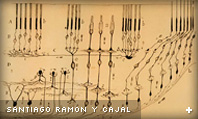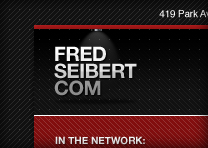Latest Post
Why Medicine Again?
Medicine isn’t what it used to be. I’ve talked to alot of physicians, researchers and residents recently and I’m not encouraged by what I’ve heard. What seems to motivate many students now isn’t a passion for helping people, it isn’t an unfailing dedication to the art of medicine, it’s comparably trivial things like money, recognition and lifestyle.
“Lifestyle“, that’s a word I hear often and it’s nothing but wrapping a nice word around hollow motives. The most competitive residency programs are in dermatology and plastic surgery. Why? Well, apparently that’s how you work the least and make the most money.
An anesthesiologist I met on a flight recently boasted about the ease of his profession. He’s active only a few hours a day and for most of those he’s kicking back after administering a few drugs. He cited the limited communication with his patients as an apparent “perk” of his specialty.

Physicians today are also prone to the influence of pharmaceutical companies, prescribing drugs like tic tacs. I’ve been shadowing a rheumatologist for several years and it’s not uncommon for patients to come in with bags full of prescriptions, each one of their doctors having added a few medications (some to counteract side effects of others). While recent legislation has limited the gifts that doctors can accept in several states, there are no such restrictions on hosted conferences (sponsored vacations). So, there is still considerable interest in maintaining the current system.
By no means are all doctors this dishonorable, but the existence of just a few tarnishes the reputations and hinders the efforts of real physicians. The doctor-patient relationship is sacred and requires complete trust for the doctor to learn what he or she needs to make an effective diagnosis, and for the patient to actually follow through on the doctor’s plan. If doctors are only in it for the money, how can a patient trust that their diagnoses are well-researched? If doctors are in any way influenced by pharmaceutical companies, how can patients be sure that they actually need the drugs they’re given?
When (not if) I take the Hippocratic Oath, I will actually heed its very simple points. A doctor is responsible for the health and life of his or her patients, a task that permits no gray area. Any sacrifice of the patient’s health or violation of their trust for convenience or profit is plain wrong.
Do I just feel like this because I’m still a naive student, will I change in medical school or later? I don’t think so, I’ve assessed and reassessed my motivations and they’re real. In fact, it was this motivation that inspired (possessed?) me to work so hard for my MCAT’s and for the tests that are sure to keep coming. I couldn’t have gotten through those last weeks and today’s exam if my reward was money. Whatever specialty I choose, I will serve people honestly, passionately and with respect, I will never let profits or any company affect my judgement, and I will “enter only for the good of my patients”.
Below are the reasons that I want to be doctor, my personal statement:

My path towards medicine began early (after all, I had picked up the toy stethoscope not the fire truck) but veered widely as I developed in my academic career. My background in philosophy first triggered deeper questions into my motivation for medicine as I struggled with impossible questions about life, purpose and truth. After a Cartesian dissection of my beliefs (one that left his cogito etched in me), I found that there were few things I could hold firmly, but those that I did would withstand any assault.
Namely, I discovered that I cannot wait for a role to be dealt to me, and therefore I know only that I want to be positive weight in the balance of the world. When I last travelled overseas, I saw many people suffering from illnesses whose treatments were either unavailable or far too dangerous given the conditions. The same thing is happening around the world on an unimaginable scale. In the face of so much suffering (easily the heaviest counterweight in that balance), I’m immediately struck by a sense of purpose and a desire to help. When millions die every year from preventable/curable diseases, it is clear that we have lost our basic respect for personhood and obligations to one another as human beings. I want to be a doctor because there is no worthier means of defending this fundamental right to life.
My experiences learning from physicians have only cemented this goal. During a recent shadowing stint with a neurologist, I encountered a child whose file described him as a “bad kid,” a constant troublemaker who had recently lashed out violently in school. The doctor uncovered a history of abuse by the mother, which included drug abuse during pregnancy, as well as spasms that he thought could be seizures associated with such drug abuse. Just weeks later, it was clear that the prescribed medications had worked. The boy’s behavior had reversed completely; he was performing well in school and was much more attentive than during his first visit. It was as if a veil had been lifted from his eyes and seeing him smile for the first time made my chest feel like it was going to explode. In seeking to tip the scales, there is no force more powerful than that of a life renewed. I want to ensure that no child like him is ever dismissed for reasons beyond their control and that everyone is always given the chance to be everything they’re capable of.
Other experiences were equally affecting. While shadowing at a local emergency department, I noticed a particularly active doctor and asked if I could shadow her. I spent the rest of the night chasing her from room to room as she expertly handled her many patients. She was both very compassionate and incredibly skilled. Despite her impressive stature, she was never imposing and she was always quick to comfort her patients by telling a joke or easing them into an encouraging conversation. I vividly remember how she sutured a man’s wound in a single fluid motion, sweeping the needle from side to side and knotting it in a big blur while I looked on in awe. My first attempts were miserable (luckily I only injured a piece of foam), but I practiced often under her direction and she soon labeled me “proficient” (an improvement over “dangerous”). Shadowing her inspired me not only want to be a doctor, but to be a great doctor.
My newfound drive towards medicine has helped focus my learning, with every course, lecture and concept settling in more firmly and with broader implications. Whether it’s the intricacies of neurophysiology or the huge variety of the body’s enzymes, what I’m studying now finally has meaning. This learning revolution (in addition to causing uncontrollable dorky outbursts of the “did you know?” variety) has expanded my interests in biochemistry, sparking my first foray into medical research. The almost Zen-like nature of delicate lab work has helped teach me the merits of patience, meticulous attention to detail, and steady hands.
Also rejuvenated is my central interest in neurology and neuroscience, where I redoubled my efforts as the vice president of my university’s CO-SIGN (College Student’s Interest Group in Neurology). Over the course of my membership, I’ve helped secure permanent status within the student association and organized community service projects, relevant guest speaker events, and shadowing activities for its members. As I moved up the executive board ranks, I learned how to entice and maintain an active membership and the importance of communicating sincerely and confidently.
I used to simply idle along a career path to medicine; now, ignited by real passion I can commit every ounce of my energy to perhaps the first real cause of my life. My philosophy is simple, “seek everything possible”, to experience the peak of what I am capable of. Only then can I fully know the limitless capabilities of my self. For me, that peak is medicine where I can satisfy both my passion for science, and my intense desire to help those who are suffering.
Archive
-
260.
The Ethics of Practicing Procedures on the Nearly Dead
The report from the field was not promising by any stretch, extensive trauma, and perhaps most importantly unknown “downtime” (referencing the period where the patient received no basic care like...
-
260.
The Ethics of Teaching Hospitals
I can’t imagine what the patient was thinking. Seeing my trembling hands approaching the lacerations on his face with a sharp needle. I tried to reassure him that I knew what I was doing, but the...
-
260.
Conscious Conversation: Behavioral Science
Dr. Eran Zaidel is a professor of Behavioral Neuroscience and faculty member at the Brain Research Institute at UCLA. His work focuses on hemispheric specialization and interhemispheric interaction...
-
260.
Progress Report
Two years down, I’m still going. The next two years are my clinical rotations, the actual hands-on training. It’s a scary prospect, responsibilities and such; but it’s equally exciting, after...
-
260.
Why Medical School Should Be Free
There’s a lot of really great doctors out there, but unfortunately, there’s also some bad ones. That’s a problem we don’t need to have, and I think it’s caused by some problems with the...
-
260.
The Cerebellum: a model for learning in the brain
I know, it’s been a while. Busy is no excuse though, as it is becoming clear that writing for erraticwisdom was an important part of exercising certain parts of my brain that I have neglected...
-
260.
Conscious Conversation: Philosophy
Daniel Black, author of Erectlocution, was kind enough to chat with me one day and we had a great discussion – have a listen.
-
260.
The Stuff in Between
I’m actually almost normal when not agonizing over robot production details, and quite a bit has happened since I last wrote an update. First, I’ve finally graduated. I had a bit of a...


